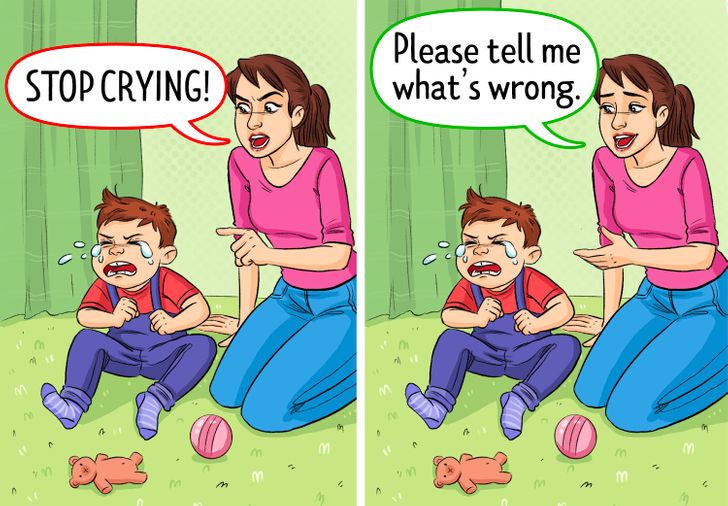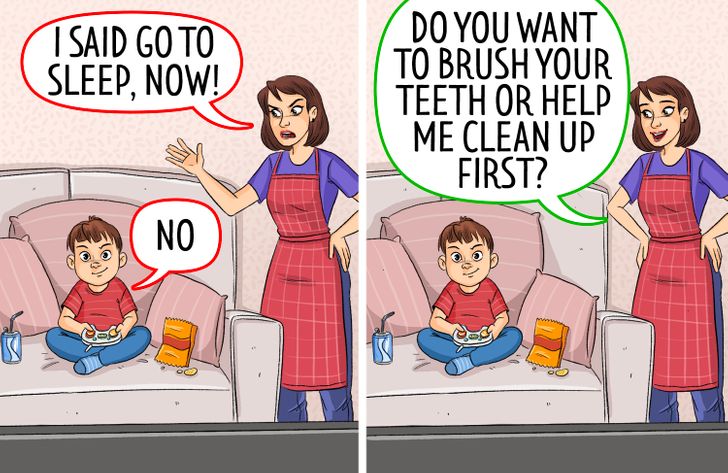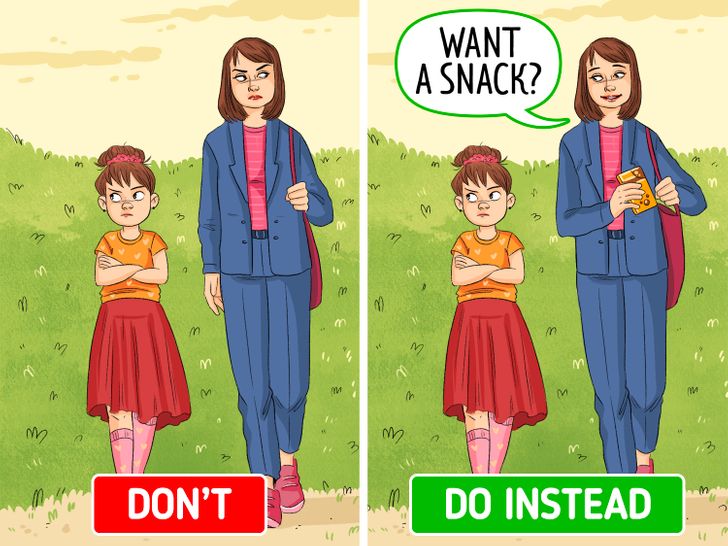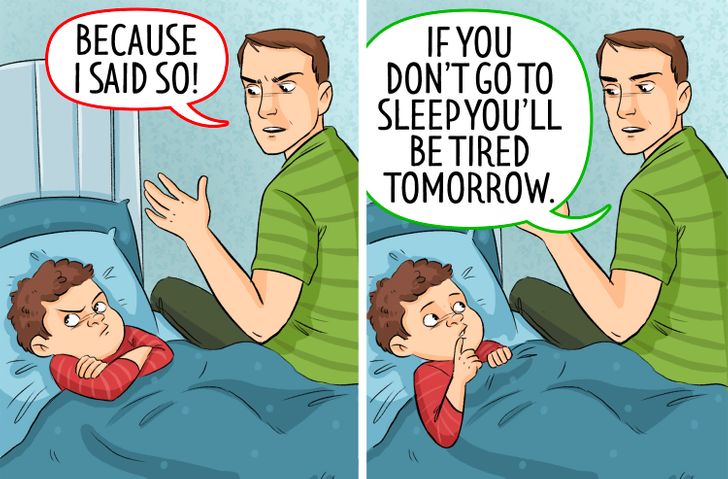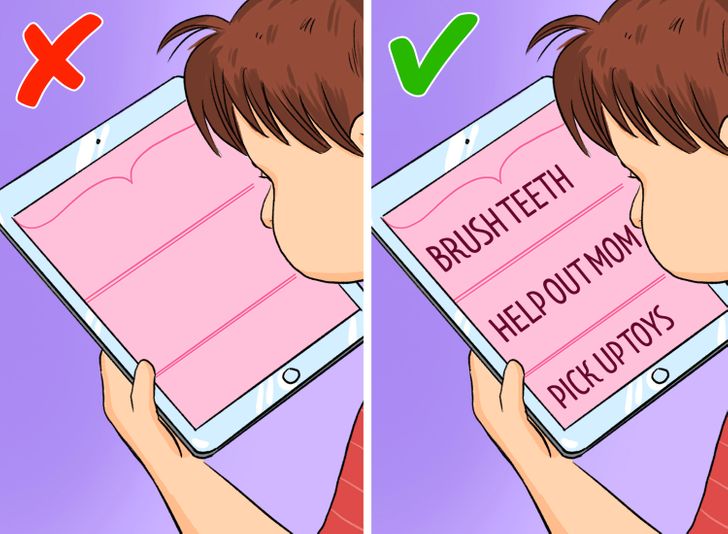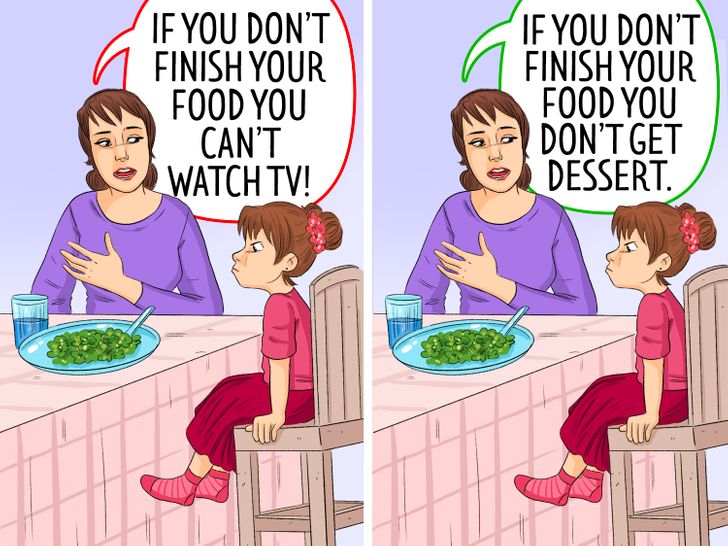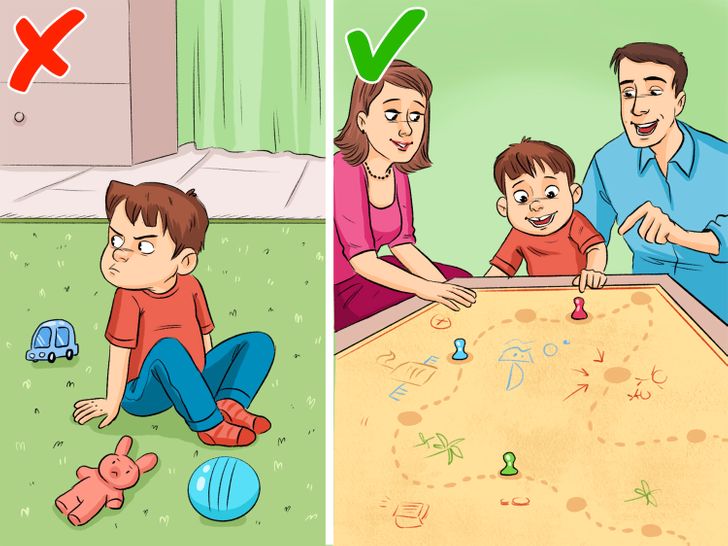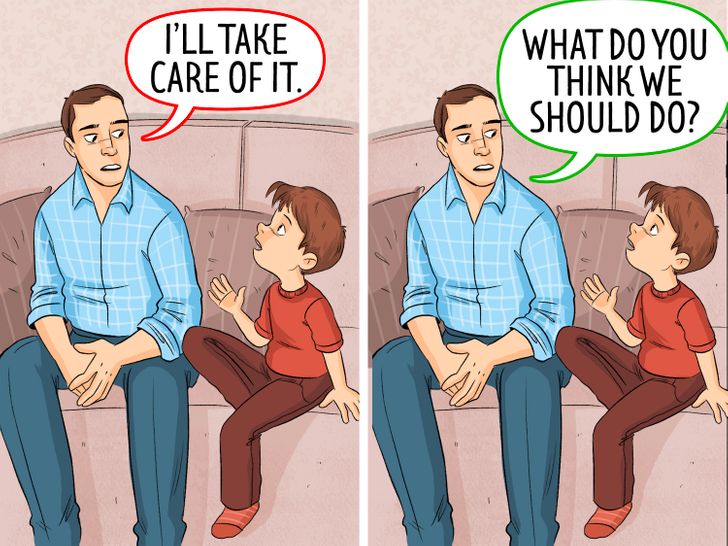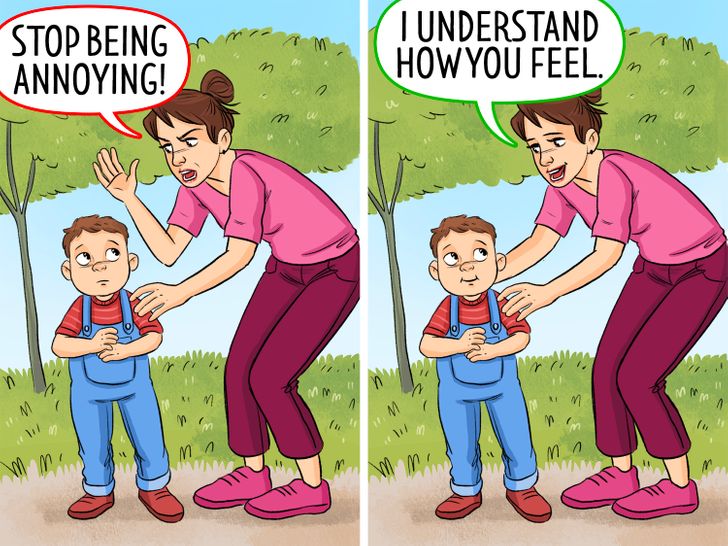There are numerous explanations for why children act inappropriately, but the most prevalent explanation is that they are simply bored. They are aware that their behavior is effective, particularly if it allows them to get their way and get the outcomes they seek as a result of it. Because being naughty is one method for children to try to exert control over their environment, a child’s desire for power can sometimes be a contributing factor in their behavior. Therefore, it is essential to be aware of how to defend against these behaviors and how to successfully deal with them. We would be delighted to assist in making your role as a parent a bit less taxing, and as such, we would like to offer you the following advice on how to forestall the occurrence of these annoying temper tantrums.
Show them a more calm approach to situations
Because children typically want to model their actions and behaviors after those of their parents, we should set an example for them by remaining calm while instructing them to do so. If they throw a fit and you respond to it by yelling at them, then they will grow to expect that kind of behavior from you. Instead, you could demonstrate to them a new approach to cope with their feelings.
Offer choices, so they can decide what they want to do
If you give your child an option, it will help satisfy their need to feel like they are in control, as stated by an assistant professor named Angie T. Cranor. Ask them which activity they would like complete first if they have to pick up their toys and then brush their teeth at the same time.
Carry snacks with you
Hunger is a common cause of poor behavior and attitude, so if you and your child want to spend time outside, bring some snacks with you. This can help prevent your child from having a temper tantrum and will keep both of you in a good mood.
Make them aware of potential bad outcomes
When a youngster asks you why they shouldn’t do something, it’s not a good idea to respond with “Because I said so,” especially if the child is older. Always make an effort to communicate with them and explain to them why they shouldn’t do certain things as well as what might happen if they continue to behave inappropriately. Make them aware of the potential natural consequences that their actions may have in order to teach them how to learn and improve the decisions that they make for themselves in the future.
Create a home routine they have to follow and reward them for it
Assist children in establishing healthy habits, such as turning off the television at a predetermined hour, helping out with the chores, brushing their teeth, and retiring to bed at the allotted time. In addition, if you are feeling particularly imaginative, you may design a calendar board for the coming month. Inform them that they will be eligible for a reward of their choosing if they stick to their schedule for the entirety of the month (or for 1 or 2 weeks, whichever comes first)
Give them logical consequences for breaking the rules
A specific act of disobedience will have the expected repercussions attached to it. If your child does not want to eat their vegetables, for instance, you shouldn’t give in and allow them have dessert. Or, if they don’t want to clean up their toys, don’t let them use them for the remainder of the day in any of their games or activities.
This is helpful for children who are having difficulty with particular topics. Nevertheless, you should steer clear of consequences that don’t make sense. For instance, if kids don’t want to eat their food, you shouldn’t make them clean the garage.
Redirect the child’s attention
The American Academy of Pediatrics suggests that children may act inappropriately at times either because they are bored or because they do not know any better. Consequently, if you can find something for them to do, particularly something that will keep them interested and entertained, you might be able to divert their attention from something negative to something positive.
Try to ask for their opinions and solutions to problems
Ask them if there is a problem or if something is upsetting them; if there is something wrong and they tell you what it is, sit down with them and discuss it. If there is a problem, ask them if there is a problem or if something is disturbing them. Make an effort to inquire about their perspectives and ideas regarding how they believe the issue ought to be resolved.
If they don’t have an answer, you can assist them out a little bit, but you should keep in mind that it’s crucial to make them feel like they are solving their problem, as well as the importance of congratulating them and encouraging them.
Acknowledge the emotions they are feeling and try to help them
You can show them that you understand how they are feeling rather than acting like they are naughty or mischievous by showing that you understand how they are feeling. It is important to always acknowledge a child’s feelings because they have such a significant impact on their conduct. A simple statement such as, “I know you’re upset that we can’t go out to the beach today, but the weather is not favorable.” might be an example of such a statement.
Saying something to your youngster along the lines of “Let’s do something else together to make up for it,” could go a long way with them.

